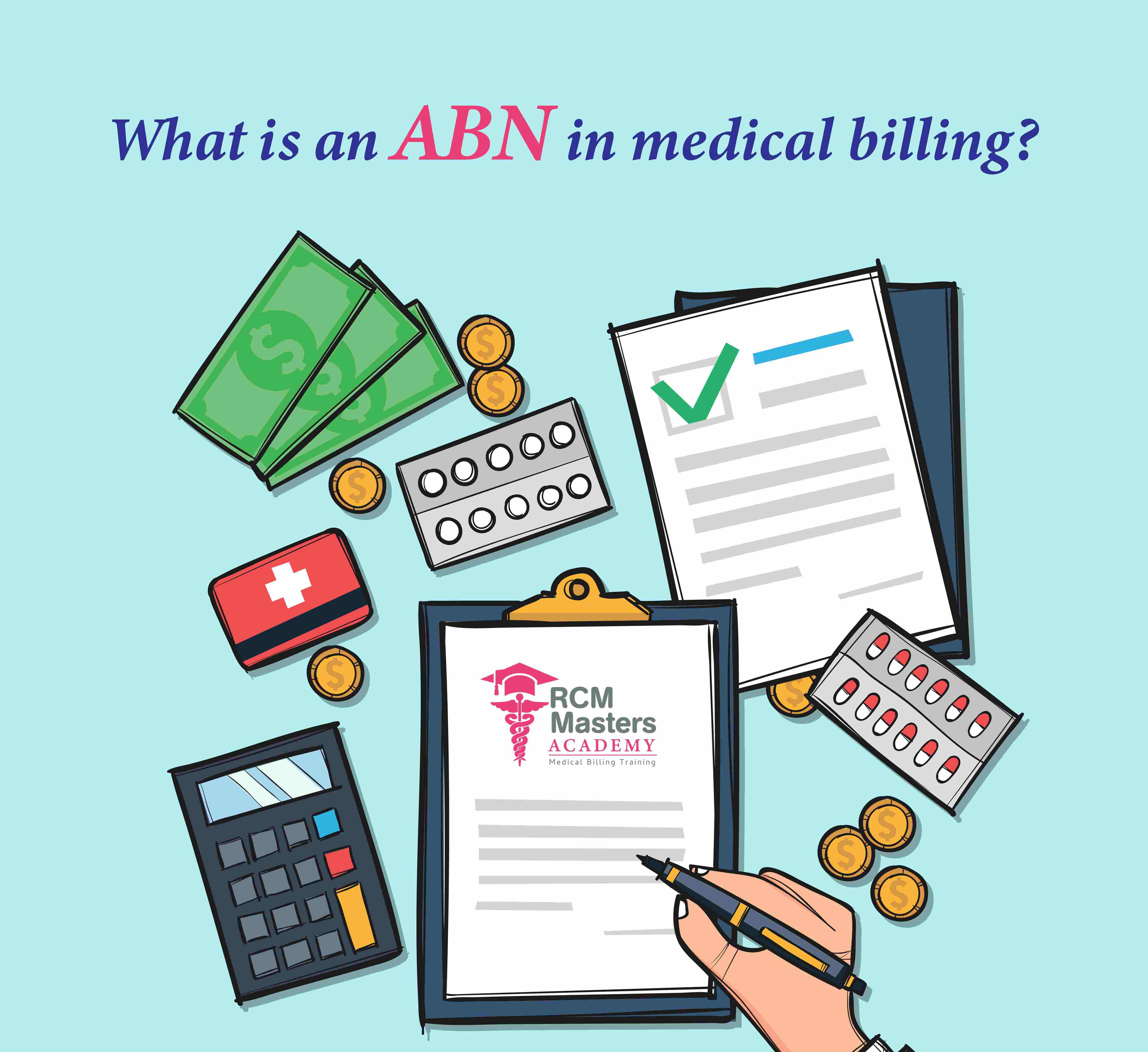 info@rcmmastersacademy.com
info@rcmmastersacademy.com

Medical billing can be a complicated process that involves a lot of different elements, including various codes and numbers that must be accurately recorded and submitted. One of the most important numbers in medical billing is the ABN, or Advance Beneficiary Notice. This document plays a vital role in ensuring that healthcare providers are reimbursed for their services and that patients are informed of their financial responsibilities.
So, what exactly is an ABN in medical billing, and why is it so important? Let’s take a closer look.
What is an ABN?
An ABN is a document that healthcare providers use to notify Medicare beneficiaries that a service or item they are about to receive may not be covered by Medicare. The ABN serves as a warning to the patient that they may be responsible for paying for the service or item out of their own pocket if Medicare does not cover it.
The purpose of the ABN is to protect healthcare providers from financial losses that may occur if Medicare denies payment for a service or item that was not deemed medically necessary. By informing the patient upfront that they may be responsible for payment, the healthcare provider can avoid potential disputes and ensure that they are paid for the services they provide.
When is an ABN used?
An ABN is typically used when a healthcare provider believes that a service or item may not be covered by Medicare. This could be due to a number of factors, such as the service or item being considered experimental or not medically necessary. In some cases, Medicare may also have limitations on the frequency or amount of a particular service or item that can be covered.
In order to use an ABN, the healthcare provider must have a good faith belief that the service or item will not be covered by Medicare. They must also provide the patient with an estimate of the cost of the service or item, so that the patient can make an informed decision about whether or not to proceed.
What are the different types of ABNs?
There are two main types of ABNs: the mandatory ABN and the voluntary ABN. The mandatory ABN is used when Medicare has a national policy that limits coverage for a particular service or item. The voluntary ABN is used in all other situations where the healthcare provider believes that a service or item may not be covered by Medicare.
The mandatory ABN is a legal requirement, and failure to provide it can result in the healthcare provider being held liable for the cost of the service or item. The voluntary ABN, on the other hand, is not a legal requirement, but is strongly recommended in order to protect the healthcare provider from financial losses.
In conclusion, the ABN is a crucial document in medical billing that helps to ensure that healthcare providers are reimbursed for their services and that patients are informed of their financial responsibilities. By using an ABN when appropriate, healthcare providers can avoid potential disputes and ensure that they are paid for the services they provide. If you are a healthcare provider or Medicare beneficiary, it is important to understand the role of the ABN in the medical billing process.
You can enroll for our Online Medical Billing Training here: